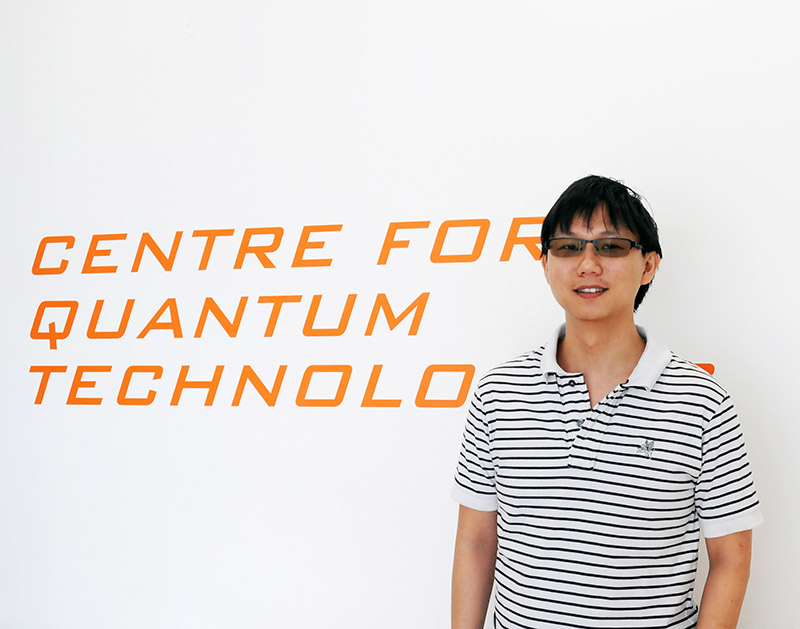Highlights
Meet a CQTian: Colin Teo

A graduate of CQT's PhD programme, Colin Teo is leaving for Austria to start a postdoc on quantum sensors.
Who are you?
I'm Colin, I'm from Singapore, and I am 29.
How did you end up at CQT?
I did physics as an undergrad in NUS, and I did my honours project with Valerio. Then I just decided to continue doing the PhD.
What was it on?
In my thesis defence, I presented two projects. One was on a loophole-free Bell test. We show how to create a particular entangled state of an atom and light, and the measurement you need to perform on this state to do a Bell test. We show that this state is robust to losses, meaning you can propagate the light some distance, which helps to close a loophole.
Please explain what the Bell test is all about...
The Bell test, fundamentally, is a test of local realism, of nature itself. You have to close all the loopholes if you want to test nature rigorously. Even if you already believe that nature is not local realistic, that is, that you can't know the outcomes of measurements until you make those measurements, it's still useful to do the test in a loophole free way. If you manage to have a device that can do this test, you have all this privacy stuff: it is useful for cryptography, random numbers and so on.
There were two projects?
The second project was on the study of the properties of the optimal control protocol for a particular task. Because it was very mathematical in nature, it is hard to elaborate without going into too many details. There's a paper on the arXiv with the details. This is something that I did in Brisbane with Howard Wiseman, when I was there for two to three months.
What research will you be carrying on with?
I am going to the University of Innsbruck to do a postdoc, and I will be working more or less on quantum sensors. It's more about quantum metrology, how to measure something as precisely as possible. I'm working with a new Professor there, Oriol Romero-Isart.
How precise does quantum metrology get?
For the accuracy and precision of the sensors that various labs have built, what I think is very surprising is the order of magnitude. For instance, with atomic clocks, right now we can measure something like 10-18 seconds. This number doesn't really make much sense, right, but then if you are able to have a force sensor that can measure 10-18 newtons, you could measure the gravitational attraction between a person here and one in new York. It is quite mind-blowing. Another way to think about it, if you do a distance measurement, it is like measuring the diameter of the earth to the precision of a single atom.
You're a theorist – is this a theoretical group?
This is a theoretical group, but I think he has very good collaborations with experimentalists. For instance, the group of Markus Aspelmeyer in Vienna, who is doing work on levitating spheres.
What's something you love about doing science?
I like the idea that what I write down, what I come up with, can be realised in real life, somewhere in a lab.
But you wouldn't want to be doing it?
No. I am really bad at experiments.
What is hard about research?
The challenging thing is aligning ideas in the correct way. Since this is research, unless you have a very clearly defined end goal, you sort of don't really know how you start, how you get there or what is the path. For instance, we recently started thinking about some interesting quantum experiments you could do with rotors, like two spheres cemented together rotating in some kind of trap. Can we somehow align all the knowledge we have of other physical systems to work out what we need to achieve this?
When do you go to Innsbruck?
Today!






